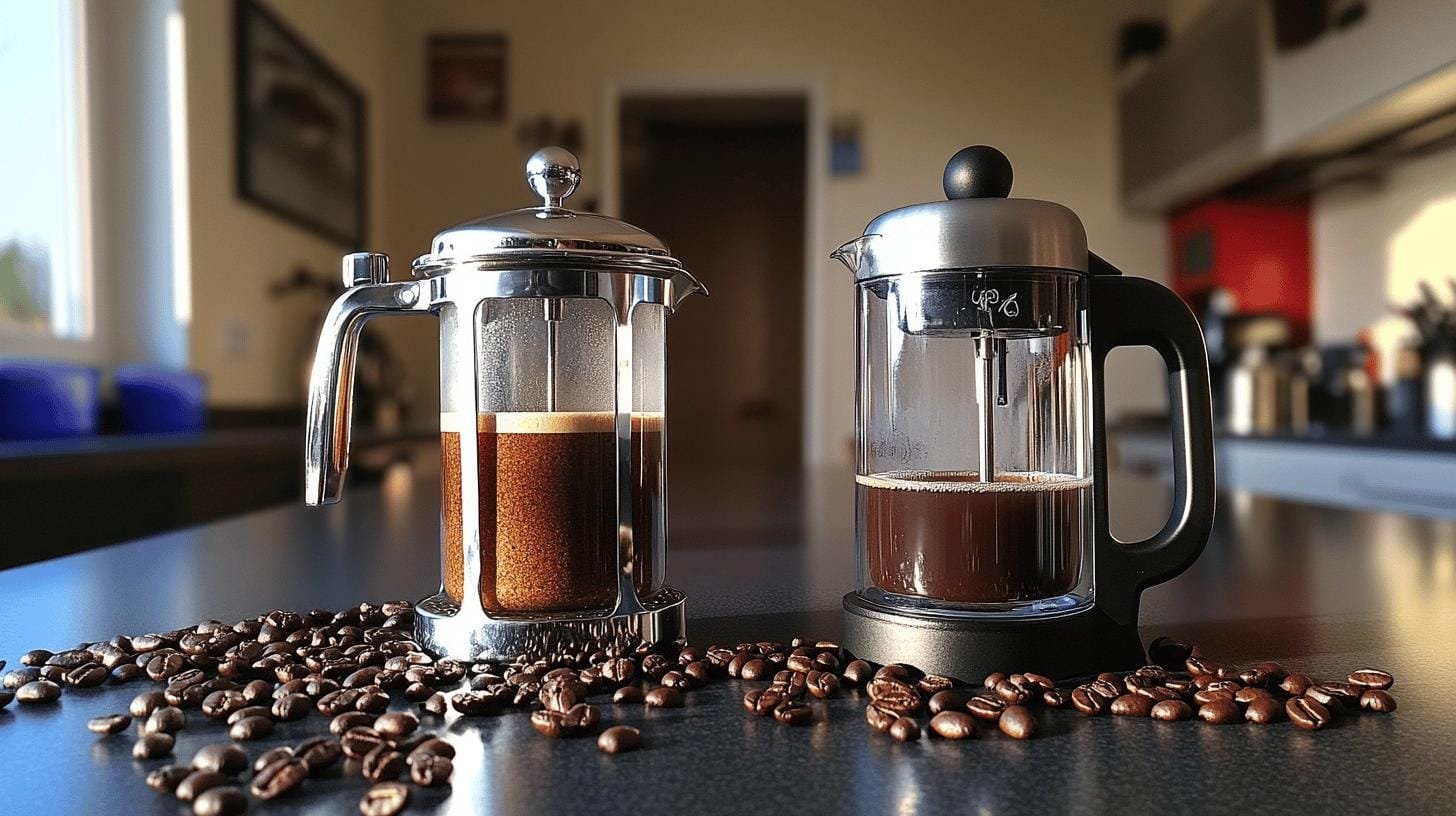Could your choice of coffee roast impact your cholesterol levels? Recent studies indicate that dark roast coffee contains fewer cholesterol-raising compounds compared to its lighter counterparts. This potential health advantage arises from the roasting process, which destroys some of these compounds, suggesting that dark roast could be a smarter choice for those managing cholesterol.
Explore how roast type and brewing methods influence cholesterol as this article delves into the link between dark roast coffee and cholesterol, providing insights for coffee lovers seeking a healthier sipping experience.
Understanding the Relationship Between Dark Roast Coffee and Cholesterol
Dark roast coffee is often seen as a healthier option for cholesterol-conscious individuals. The roasting process significantly reduces cholesterol-raising compounds in coffee beans. During roasting, the levels of compounds like cafestol and kahweol decrease. These compounds are more common in lighter roasts, where roasting hasn’t broken them down enough. Therefore, darker roasts have fewer of these substances, making them potentially better for managing cholesterol.
When brewing coffee, the method can affect the cholesterol-raising compounds in your cup, especially if you use lighter roasts. Some methods retain higher levels of these compounds:
For those focusing on cholesterol management, opting for dark roast coffee can be beneficial. It contains fewer cholesterol-raising compounds and pairs well with brewing methods that don’t use paper filters. Methods like French Press or Turkish coffee, without filters, allow more compounds into the drink. Thus, choosing a dark roast might help reduce cholesterol-raising substances, offering a heart-friendlier option for concerned coffee lovers.
The Impact of Coffee Brewing Methods on Cholesterol Levels

Does the brewing method affect cholesterol levels in coffee? Yes, it significantly influences cholesterol-raising compounds. Unfiltered methods, such as French press and espresso, typically lead to higher cafestol and kahweol levels. These can raise LDL cholesterol in some people. Filtered coffee, however, tends to remove some, reducing their impact on cholesterol.
Unfiltered Coffee
In unfiltered coffee, like French press and espresso, cafestol and kahweol stay in the drink. These diterpenes raise LDL cholesterol when consumed significantly. Without filtering, these compounds remain, affecting cholesterol levels. It is vital for those worried about cholesterol to be aware of the increased intake with unfiltered coffee.
Filtered Coffee
Filtered coffee, such as drip coffee, uses a paper filter to reduce cholesterol-raising compounds. The filter captures cafestol and kahweol, resulting in a drink less likely to impact LDL cholesterol negatively. For those watching cholesterol levels, filtered coffee might be a better choice.
| Brewing Method |
Cafestol Level |
Cholesterol Impact |
| French Press |
High |
Increases LDL cholesterol |
| Espresso |
Moderate |
Increases LDL cholesterol |
| Turkish Coffee |
High |
Increases LDL cholesterol |
| Drip Coffee |
Low |
Minimal impact |
Scientific Studies on Coffee and Cholesterol
Studies show that coffee, in moderation, generally doesn’t raise LDL cholesterol much. Some even suggest benefits, like antioxidants and lower disease risk. These findings show coffee’s health impact is complex and depends on type and amount.
Research has found compounds like cafestol and kahweol, especially in unfiltered coffee, can raise LDL cholesterol. The presence of these compounds varies with coffee type and brewing method. Thus, while moderate consumption may not pose a risk, higher intake of certain types can increase cholesterol in some people.
Coffee’s effects on cholesterol vary greatly due to;
These personal factors change how coffee affects LDL cholesterol. For some, moderate consumption is harmless or beneficial, but for others, it could be risky. Knowing one’s health profile can guide better coffee choices.
Practical Tips for Coffee Drinkers Concerned About Cholesterol

Moderation is key. Consuming moderate amounts of coffee helps lower intake of cholesterol-raising compounds like cafestol and kahweol. Brewing methods matter too, as unfiltered ones result in higher compound levels. By choosing filtered methods, like drip coffee, you can reduce exposure and manage cholesterol effectively.
Tips for reducing coffee’s impact on cholesterol:
- Opt for Filtered Coffee: Use paper filters to trap cholesterol-raising compounds.
- Choose Darker Roasts: Dark roast beans have fewer cholesterol-influencing substances.
- Limit Unfiltered Methods: Minimize use of French Press and Turkish coffee.
- Watch Additives: Avoid high-fat dairy or coconut milk, which can raise cholesterol.
- Monitor Quantity: Keep coffee consumption moderate to manage cholesterol.
While coffee choices impact cholesterol, so does the overall diet. High saturated fat intake can worsen cholesterol issues, so it’s vital to maintain a balanced diet. Considering these factors helps coffee drinkers make informed choices for better cholesterol management and health.
Comparing Dark Roast to Light Roast Coffee: Cholesterol Considerations
Dark and light roast coffees differs in cholesterol-raising compounds. Dark roast beans have fewer of these substances than light roasts. Very dark roast coffee might have half the amount of those in light roasts. This difference exists because dark roasting breaks down cafestol and kahweol, the main diterpenes raising LDL cholesterol.
Differences between dark and light roasts regarding cholesterol:
- Cafestol and Kahweol Levels: Dark roasts have lower levels than light roasts.
- Roasting Duration: Longer roasting in dark roasts reduces cholesterol-raising substances.
- Cholesterol Management: Dark roasts may be better for cholesterol-conscious individuals.
- Flavor Profile: Dark roasts offer a robust flavor, possibly preferred despite cholesterol concerns.
Due to fewer cholesterol-raising compounds, dark roast coffee is a better choice for managing cholesterol. Lower cafestol and kahweol in dark roasts make them more heart-friendly, especially for fans of unfiltered methods like French Press or Turkish coffee. Choosing dark roast coffee helps minimize cholesterol impact while enjoying rich flavors, making it a better option for those concerned about dark roast coffee and cholesterol.
Final Words
Exploring the relationship between dark roast coffee and cholesterol revealed insightful findings. Darker roasts generally contain fewer cholesterol-raising compounds compared to lighter roasts, making them potentially better for cholesterol management. Brewing methods significantly impact these compounds, with unfiltered coffee showing higher levels of cafestol and kahweol.
Scientific studies suggest moderate coffee consumption does not significantly affect cholesterol levels, with benefits varying based on individual factors. Practical tips for cholesterol-conscious coffee drinkers emphasize moderation and awareness of brewing methods.
By understanding the interaction between dark roast coffee and cholesterol, individuals can make informed choices and enjoy their coffee while maintaining health.
FAQs
Why is dark roast coffee considered bad for cholesterol?
Dark roast coffee may be considered less harmful for cholesterol because it contains fewer cholesterol-raising compounds than lighter roasts. This is due to the roasting process reducing these compounds.
Is dark roast coffee healthier than light roast regarding cholesterol?
Dark roast coffee contains fewer cholesterol-raising compounds than light roast, making it a better choice when considering dark roast coffee and cholesterol levels.
Is dark roast coffee carcinogenic?
The roasting process of dark roast coffee does not inherently make it carcinogenic. Concerns often arise from overroasting, which can produce harmful compounds, but moderate dark roasts are not typically considered carcinogenic.
Can decaf coffee influence cholesterol levels?
Decaf coffee affects cholesterol levels similarly to regular coffee, depending on the brewing method used. Filtered decaf coffee is less likely to raise cholesterol.
What type of coffee is beneficial for managing cholesterol levels?
Filtered coffee, using lighter-roasted beans, minimizes cholesterol-raising compounds than unfiltered methods, making it potentially beneficial for managing cholesterol levels.














